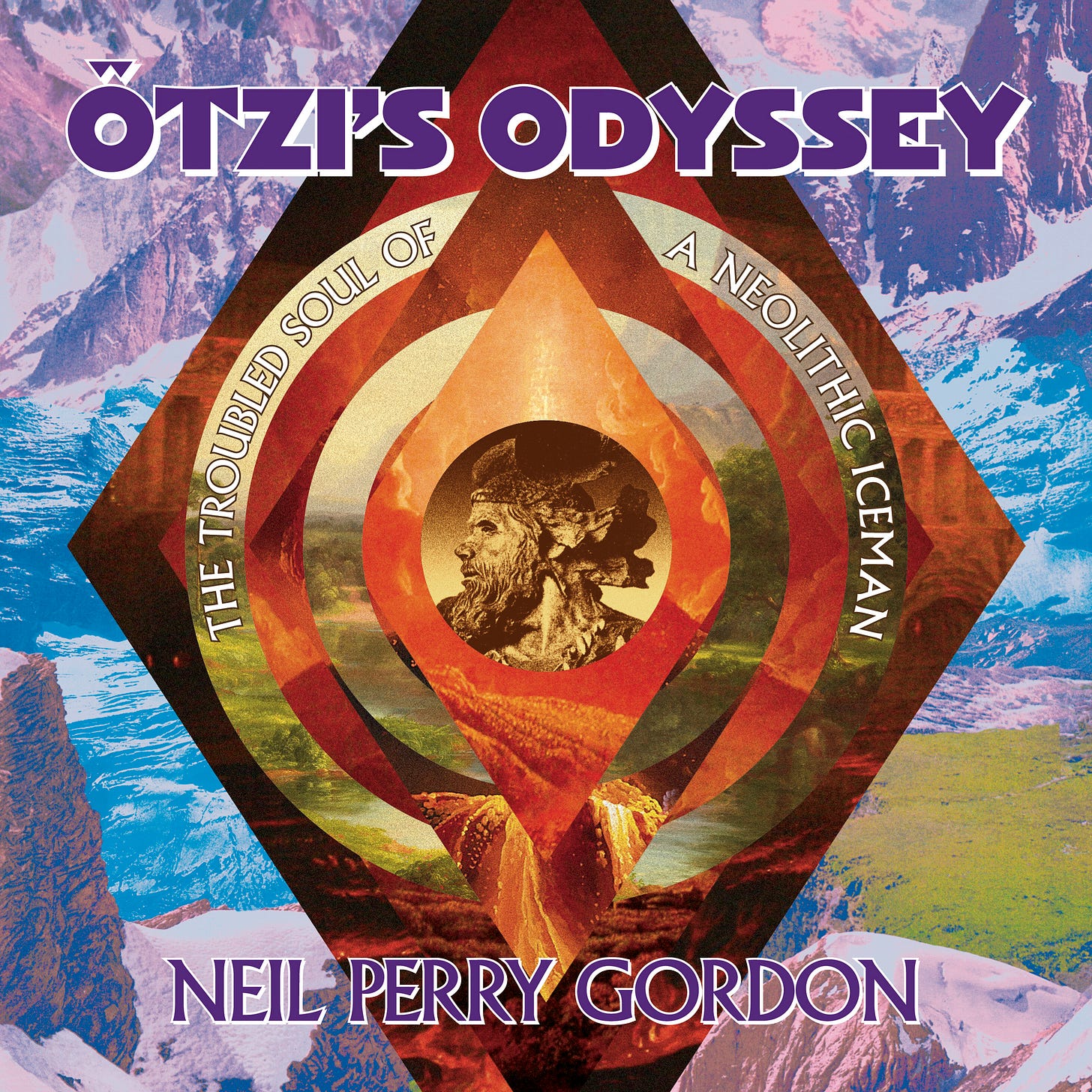Hi readers of Neil Perry Gordon. My name is Maximilian LionMan. I am the son of your favorite novelist and proud to share in the excitement of his new book—Ötzi's Odyssey: The Troubled Soul of a Neolithic Iceman.
I would like to share my story, which began just weeks before the Covid-19 breakout in China. Fascinated with prehistory, I made a promise to myself to visit Europe's cave art archaeological sites and prehistoric museums.
I made my way by train from Munich, Germany to Bolzano, Italy, for that is where Ötzi the Iceman's body is preserved. Traveling south, we traversed through the rugged and jagged snowy peaks of Austrian Alps, and down into the warm, lush and fertile plains of northern Italy. As we continued, we passed orchards, vineyards and small homesteads.
"How romantic," I mused. The region of Bolzano is home to a growing number of farms transitioning back to organic agriculture. The word "terroir" is applicable here for its abundance of wines, apples, wheats, and more products.
Arriving in Bolzano was not like arriving into Rome. It was quiet, and simple. I then set out to find the museum. As I walked into the small town, I looked up and down the map for the Ötzi museum. Finally, I found it tucked into a corner which resembled a store from Harry Potter's "Diagon-Alley". Entering the museum was a shock. The modern lights, hard metal walls, and stone floor contrasted strangely with the European old-world feel of its outdoor setting.
I had an agenda. Yes, I wanted to see Ötzi's body, but the Iceman was relatively small, and strangely sick. The scientists said he had parasites and arthritis in his joints - perhaps due to an infection from lyme spirochetes (i.e., lyme disease), and a reliance on gluten-containing grains (e.g., Einkorn wheat) - which decreased his quality of life.
I was curious of his equipment- the longbow, flint-knapping tools, a bear-skin cap and goat pants, a flint knife, amulets, a copper-axe, iron pyrite for making fires, and arrows made of viburnum shoots - all spoke to me of a long line of ancestors who knew how to survive on their landscapes.
Thinking back on to this experience, I can attribute this as something that has enlivened my work with young children as their outdoor mentor. I want children to understand and feel confident enough that they can live as adults without modern technology, if they have to, while at the same time feel grateful for modern technology.
For example, what happens if you don't have a gun for hunting, or matches to start a fire? How about if you have parasites, and need to rid your body of them (if they are causing you distress such as loose bowels)? How would go about all of your everyday activities with only working with local plants, animals, stones, bones, shells, etc.?
Children will become adults, who once again can carry on these traditions in their pockets and backpacks. It's possible to carry such biodegradable survival tools that are in my opinion the epitome of sustainability, and peak human technologies.
If you want to learn more about my work please visit www.thelionmanschoolofrewilding.com
Our Milkweed Survival Camps are a great place start for your children to install a sense of peace, fun, and adventure, in nature. Together we are on this journey towards a healthier planet.
Yours truly,
Maximilian LionMan
Review for Ötzi's Odyssey: The Troubled Soul of a Neolithic Iceman
Richly researched, ornately plotted… A page-turner.
"Gordon’s latest is a deeply engrossing metaphysical tale of one soul’s journey to redemption. When a mummified man, half frozen in glacial ice, is discovered by two hikers, it’s just the beginning of a treacherous journey into the four demonic realms of Gehenna for the five-thousand-year-old soul of Bhark. Bhark must prepare for a vicious war if he wants to find salvation and redemption of his eternal soul. This is an intriguing story, haunting and moving, set in the violent, terrifying world of both living and dead, a world in which soul hunters prey on innocent souls, making them captives for eternity. This is also the story of family bonds, love, revenge, and redemption. The novel, narrated by Bhark from the discovery of Ötzi’s body, crisscrosses through time, cutting between past and present. This structure, which might have become a distraction in a novice writer’s hands, adds to the story’s intrigue. Gordon’s vivid imagery, deft characterization, and entertaining storytelling carry the reader through this suspenseful tale. A haunting, visceral novel that will keep the reader awake until they turn the last page."







